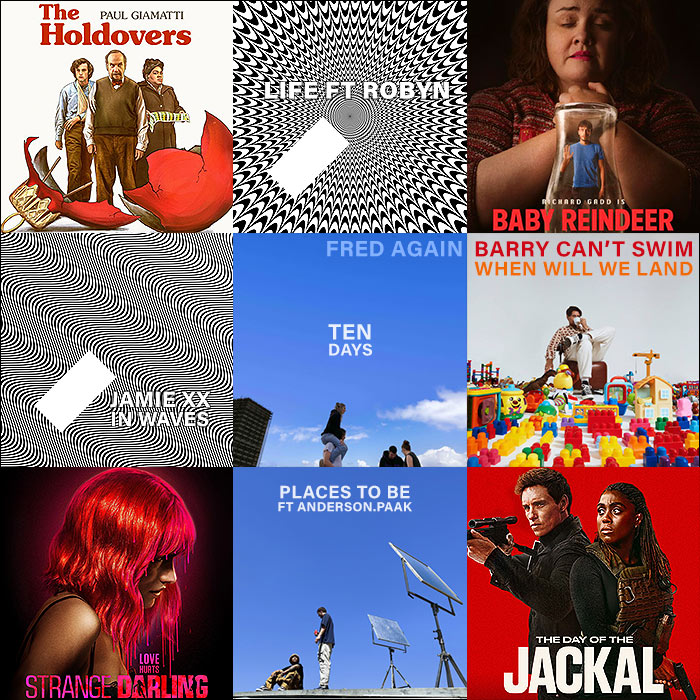The Increasing Internationalisation of Media

The Internet is largely a multi-cultural and International environment. Peoples of many countries follow the same news, blog and entertainment resources, yet don’t have the same access to related media content. I can perfectly understand for live broadcast events - why you might want to and need to have Geo-blocking and Regional restrictions in place, I no longer understand why for general Videos, DVDs, Music etc. there are restrictions from one country to another.
This failing was perfectly illustrated when I was on holiday in Iceland a week ago. Iceland lies midway between the USA and Europe, and is equally influenced by both continents. Most of Iceland’s American TV content runs concurrently with the US release schedule - the same goes for say Music CD’s - as Iceland is midway in the Atlantic, music releases are pretty spontaneous here - arriving simultaneously from USA, UK and Europe. Iceland has no MTV website - yet it can access most of MTV USA. When I’m in the UK, lots of MTV USA content is restricted to USA IP addresses. Lots of related US TV program resources though are restricted from viewing from Iceland - this makes no sense to me?
I follow a lot of American news sites and blogs, and often get blocked by the relevant video player for being in the wrong country - ’This media is owned by Sony and is not licenced for your Region!’ or something similar. This happens quite a lot for YouTube music videos, which I totally cannot understand. I also cannot understand why music available on USA iTunes might not be available on UK iTunes - I can go to the same music blog sites, artist sites, MySpace sites etc. - I know the album is out, I have heard most of the tracks, but I am unable to buy the album officially in my locality. I don’t condone media Piracy in any way, but fully understand why and how it happens. All people are created the same - they hear or see something, and they instantly want to own it - for quite a lot of content, immediate ownership can only be gained by illegal means.
I can understand why the big music giants did this in the past - they want to co-ordinate releases for maximum exposure and maximum chart impact - so they sell more of said release. Alas I think, those days are far behind us now. Interesting statistics from USA TV audience research are showing that more and more people are watching TV shows outside the scheduled broadcast times - either recording the show, or watching it on-demand. The ’on-the-night’ statistic is fast becoming irrelevant, as for many shows, the major part of the audience does not view the show on the night of release. I know from my own TV viewing habits that I increasingly watch TV on-demand - both via my TalkTalk TV Box, and on-demand services like iPlayer, ITV Player, 4OD etc.
The big music giants like Sony will soon fall by the wayside if they fail to adapt to the changing needs of the remaining music-buying public. I still buy a lot of content on solid media - including DVDs, CDs and Vinyl. When I travel for instance, I like that I’m able to buy heavily discounted DVD’s at the Duty Free - which I can then watch immediately on my laptop, and discard or keep, as I wish. With digital media - particularly high quality digital media - this is only available via streaming (which does not work on most planes!) or via extended download. Buying 10 DVDs at Duty Free requires no effort; If I was travelling with an iPad, I would need to have co-ordinated my viewing activities way in advance of travel - this will of course improve as download speeds continue to improve, but there will be no substitute for instantly available solid media.
Another majorly annoying trait is that I am a registered member on several sites, yet when I log onto said sites from Iceland - I get restricted viewing. Media owners are total morons in that way - they don’t fully comprehend the mobility of their customers - with airplane travel at its height, people are freely and frequently moving beyond their own country borders - they should be able to take their access rights with them wherever they go. I hate that Google now always directs me to Google.co.uk - when doing research, I sometimes want to and need to access the .com domain content. There was an interesting blog post on Gizmodo recently of a customer who had bought a video from iTunes, yet when he tried to connect his iPad to his TV for full-screen playback - iTunes’ rubbish DRM kicked in and prevented him from doing this! If he had bought his video on DVD or downloaded it illegally from a torrent site, he would have been freely able to play back his media from any device he cared to use - yet buying digitally through official channels - totally limits his enjoyment of said media!
I feel very strongly about the open and ’Simultaneous’ Internet - If I am exposed to something new - say via Perez Hilton, I don’t see why I’m being blocked from viewing said content. I am perfectly willing to pay for access to media, yet much of said media is not made available to me through official channels.
Many question the feasibility of simultaneous release, yet I see this as the only way to go, and the only way to prevent all-out piracy. Pirated materials are always of inferior quality, a large proportion of that audience would much rather view better quality content through official channels - as long as said content is made available to them, and at the right price point. One of the very best examples of how this is working correctly is the Apple App Store - where most of the apps / games I buy are in the range £0.59 - £1.99. For watching TV programmes online, the guide should be £0.99 for an hour show, £0.59 for 30 minutes, and a significant discount for buying a whole series. Movies should be priced in line with Cinema tickets for immediate releases, and be discounted on a sliding scale on a month-by-month basis - these would be on-demand prices of course. For downloading-to-own media, perhaps a 30% surcharge should apply at each price point.
For music ownership, it is often much cheaper to buy a higher quality CD, than an album via iTunes. The worst example I saw was a mix compilation of 40+ tracks where iTunes had priced the album for every individual track at £0.79 x 43! I firmly believe this is still a little on the high side. The reason the App Store works so well is largely to do with the correct price points. Angry Birds is a multi-million dollar business, and yet it retails at £0.59 - if music companies weren’t so greedy, singles should really be made available at the same price - with a volume discount when several tracks are purchased together and part of a full album or compilation. Some mix compilations contain 60+ tracks - and iTunes tries to sell you these as if they were indivually priced. The truth is that there are a lot of idiots still pulling the strings; some of these inflexible bloated dinosaurs will soon fall by the wayside as cleverer, leaner organisations take their place with better-thought-out service platforms.
I look forward to the time of universal access for all at the right price - it surely cannot be too long away now!

Did you find this content useful?
Thank you for your input
Thank you for your feedback
Upcoming and Former Events
Affino Innovation Briefing 2024
Webinar - Introduction to Affino's Expert AI Solutions - Session #2
Webinar - Introduction to Affino's Expert AI Solutions - Session #1
PPA Independent Publisher Conference and Awards 2023
Meetings:
Google Meet and Zoom
Venue:
Soho House, Soho Works +
Registered Office:
55 Bathurst Mews
London, UK
W2 2SB
© Affino 2024

















